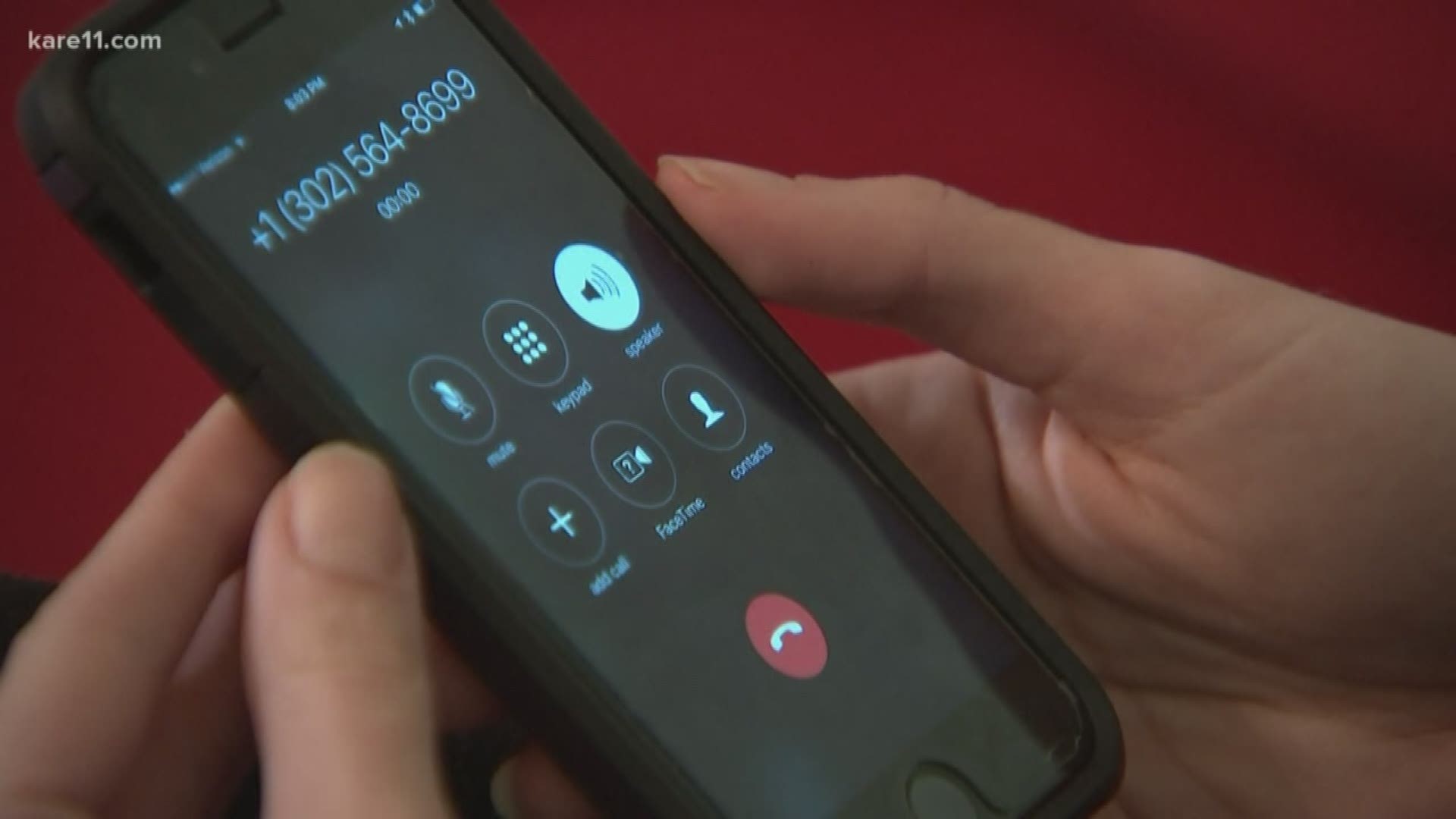MINNEAPOLIS — Last year Americans received more than 58.5 billion robocalls.
The average American gets one every other day.
That's about what we're seeing here in Minnesota, we're average.
But in some places like Washington D.C. it's four times worse.
The struggle is real.
"The problem is out there because it's so easy for robocallers to make millions of calls and they work."
Alex Quilici has been dealing with Robocalls for nearly a decade.
He's the CEO of YouMail, a software company that stops robocalls dead in their tracks.
He says based on his company’s data, the amount of robocalls in America has nearly doubled in the last two years.
Here’s why:
"People stopped answering the phone as much and they started using apps that block their calls. That made it harder for robocallers to get through. And well, if you don't make it through on the first call, what are you going to do? You're going to put in another call, and another call, and another call,” Quilici says.
So us being smarter about the problem is actually creating a bigger problem.
But another reason we saw more robocalls last year is more “bad guys” saw the potential to make money.
And also more “good” companies are using them too.
When you hear the word "robocall" you probably only think about the bad calls, but Quilici says there are many good robocalls too.
"In the good category, it's the pharmacy reminding you your prescription is ready, the school district telling you there's a snow day, or the credit company warning you and that you missed a payment,” Quilici says."
So, there's a place for robocalls, the good ones at least.
The problem is, how do you get rid of the “bad” while protecting the “good.”
Quilici says congress passed a law on New Year’s Eve that should help a little.
The Trace Act basically gives law enforcement more tools to go after robocallers and forces the phone carriers to block fake phone numbers.
"These are good things to reduce the number of calls. On the other hand, it's very, very easy for new robocallers to start up," Quilici says.
And they're smart.
They'll find new ways around it.
Quilici says we might see a small decrease in robocalls this year, maybe a 10% drop at the most, but unless Congress does something drastic that would hurt both good and bad robocalls, they'll keep coming through.
"What can consumers do about it? Just get the robocall blocking apps, don't answer the unknown calls, and do a little bit of research before you call a number back. If you do all that, that will minimize the impact significantly."

